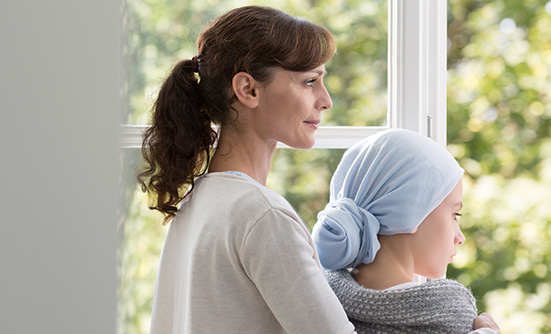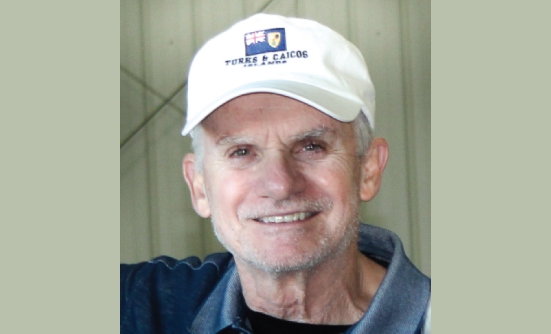Growing up is one of life’s most daunting stages. Children, adolescents, and young adults have to navigate the challenges of homework and getting good grades, making friends–maybe even dating or getting through heartbreak. Now imagine going through childhood worrying about all that–and cancer.
According to the American Cancer Society, childhood cancer accounts for less than 1 percent of total diagnosed cancers each year. And although statistics show that more than 80 percent of children with cancer live 5 years or more (after diagnosis), many–if not all–of childhood cancer survivors continue to struggle physically, emotionally, and even psychologically long past the initial diagnosis. While cancer diagnosis and treatment bring anxiety and challenges for both the child and his or her family, childhood-cancer survivors and their parents often discover that they have different hurdles to overcome after the treatments are over.
In most cases, pediatric-cancer survivors lag years behind in school. Close friends may have moved up to higher grades or graduated and formed bonds with others. Survivors may even feel anxious about re-entering school and re-establishing routines.
Some children treated for childhood cancer find that they have a more difficult time learning than their peers. Various cancer treatments, especially chemotherapy, may negatively affect children’s cognitive functions and lead to what is known as “chemo brain.” Childhood cancer survivors may experience difficulty in concentrating, short attention spans, or have trouble completing tasks or learning new things. Some children may have issues with fine-motor coordination, making it challenging for them to accomplish everyday tasks, such as tying shoelaces, engaging in physical activities or sports, or writing by hand. Understandably, this may affect a child’s performance when he or she goes back to school, and may also be a cause for frustration and anxiety. Some of the other possible long-term effects of cancer treatment include heart or lung problems, infertility, and increased risk of developing other types of cancers later in life.
Read: Navigating the Unique Needs of Adolescents and Young Adult Cancer Survivors
Anxiety, mood swings, bouts with depression and post-traumatic stress disorder (PTSD) are just some of the psychological effects that cancer survivors and their families may experience. Most adolescents and young adults who survive cancer worry that they’re not yet completely out of the woods and that their lives are still “in danger.” Often, smells, sounds, and sights that remind them of hospitals or the many treatments they endured trigger strong emotional and physical responses, sometimes years later. Some survivors may even carry this emotional weight with them through adulthood, affecting their chances at a rewarding career, a lucrative job, or a fulfilling family life. In particular, studies have shown that children who survive cancer or undergo treatment in the central nervous system are more prone to developing mental health issues later on in life.
Childhood cancer survivors may also experience delayed sexual maturity, which may lead to feelings of inadequacy or insecurity. They may feel a certain loss of control and independence, and may constantly be angry and irritable, especially during their adolescence and early-adulthood years.
As much as a strong support system is crucial for helping children with cancer to cope with surgery or rigorous radiation or chemotherapy treatments, the same tenacious support, care, and love, are needed by survivors to empower them to transition back to a normal routine.
It’s important to note that because childhood cancer is rare, many educational institutions have little to no experience dealing with cancer survivors who return to school. It’s always best for parents or caregivers to discuss a proper educational plan with teachers and the schools’ principals. This plan should consider a student’s holistic needs–emotional, physical, academic and social. Many resources are available online, such as this informative and inspiring article , to help educators understand the varying needs of childhood cancer survivors, and learn how to help these kids readjust. You may wish to invite someone from your child’s medical or cancer-care team to help you discuss your son’s or daughter’s situation, diagnosis, and necessary accommodations with the school’s faculty, and perhaps with his or her peers as well. This could be done before your child’s treatment ends, so your child re-enters a welcoming, supportive environment when he or she returns to school.
Honest and open communication, and knowledge and awareness are keys to helping childhood cancer survivors re-assimilate into daily life. As a parent, it’s crucial to stay in touch with your child’s doctors, oncologists, and therapists to ensure that your child receives proper after-care, including screenings, tests, and therapy to monitor physical, social and mental wellness. Parents should hold meaningful conversations with their child. Be frank and be willing to genuinely listen to your child’s fears and anxieties, as well as their hopes and dreams. It’s also good to be able to set expectations about your child’s future–especially regarding topics around limitations and potential negative effects that may come later in life. It’s best to be sensitive about your child’s needs–monitor and watch for problems. Most children, especially teenagers, won’t open up about how they’re feeling or the challenges they encounter at school.
It would be beneficial to expand your and your child’s support system and look for other parents and families going through similar challenges. Support groups provide you with opportunities to connect with and learn from families who have gone through the same experiences. Ask your hospital for local cancer support groups and programs. If you can’t find one in your city, try searching for online support groups for your family, yourself, or your child.
When deciding which support group to join, ask yourself and your child how comfortable you are talking to strangers about your personal experiences. It might be good to choose a small, intimate group first. Remember, the vision, values, and purpose of each support group vary—from communities that connect adolescents or young adults with other childhood cancer survivors, to networks that help cancer patients and survivors look good and improve their self-esteem.
Now, more research, time, and programs are dedicated to giving childhood-cancer survivors the proper care and support to help them continue to thrive—from the moment they stop treatment all the way until adulthood. Some programs even offer regular screenings for the most frequently occurring endocrine and cardiac complications associated with long-term cancer survivorship. Others also offer professionals who can help you and your child mentally and emotionally prepare for life after cancer.
Cancer is tough. Being diagnosed with this disease and going through various rigorous treatments as a child is even tougher. While the road to recovery for childhood-cancer survivors can be riddled with bumps and ruts, successfully navigating challenges is possible, with the right mindset, the right preparation, and people who love and care for you by your side.















